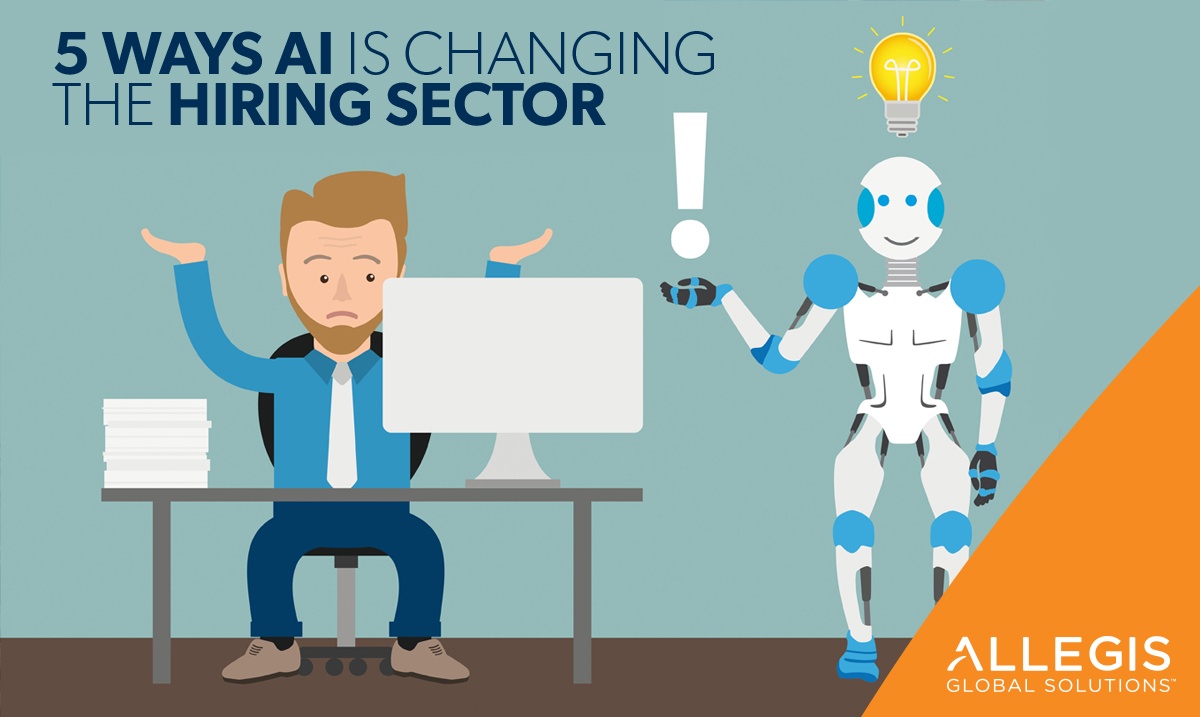5 ways AI is changing the hiring sector

Artificial intelligence (AI) is seeing increased adoption around the world in most industries, which means all workers across the globe should be aware of how their roles may change in the future, especially those working in jobs that could be easily automated.
Hiring managers may be particularly affected by the introduction of AI in the workplace, since it will affect both their own work and that of the talent they bring on board.
How will AI change the hiring sector?
Hiring managers will see an evolution in the way they carry out their own duties as well as the types of people they place within their businesses. They’ll have to consider how AI will
Some hiring managers are concerned that more automation could mean the end of their role. But this is unlikely to be the case in the near future. Rather, AI will offer benefits to these professionals.
1. Hiring managers will see an increase in demand for tech jobs
Many hiring managers will find they’re looking for more tech-focused candidates. They’ll have to find more tech engineers and other applicants to work within the expanding AI sector, as well as those who are comfortable working with this level of tech. They’ll have to be aware of how their businesses are going to change with the advancements in AI and automation. When they know, they can plan their hiring strategies more efficiently.
2. The nature of their roles will evolve
Hiring managers will see the actual nature of their day to day roles change as more AI is introduced to their businesses. They’ll end up spending less time on repetitive admin tasks that don’t involve much creativity - for example, filling out forms and sending emails - and more on the elements of hiring that require a human input, like working out budgets and managing HR issues.
3. Candidate screening will become automated
When candidates apply for positions within their companies, hiring managers will be able to make the whole process more efficient through the use of AI. Automated systems will be able to respond quickly to candidates, helping to enhance candidate engagement. According to Fast Company, only 40 percent of recruiters actually respond to applicants. This surely makes for a negative experience for the candidate, which could leave them with a bad impression of the company.
4. Companies can keep future hires engaged
Once a role has been filled, unsuccessful applicants will typically never hear from the organization again. However, automated systems can ensure that their details are kept after a position they applied for is closed. After that, companies can ensure that if an appropriate role comes up in the future, these candidates with the right skills can be searched for and contacted again.
5. Candidates can be more easily onboarded
The onboarding process can be complicated for both hiring managers and new recruits. AI can make things easier, though. Programmed systems can send out information prior to the new hire’s starting date, which they can then refer back to. This is particularly relevant to hiring managers, considering people typically forget 90 percent of new information within a week of learning it.
As you can see, the advantages of AI to hiring managers are significant. It can result in better candidate experiences and allow hiring managers to use their skills for more advanced problem solving.
You can find out more about how AI could affect the hiring sector and how it might impact the way your business works by reading our whitepaper, ‘AI and automation: The future of recruitment and talent management.’-min.png)



